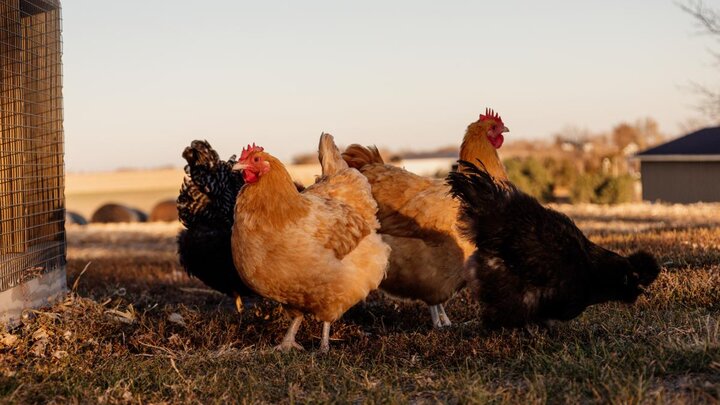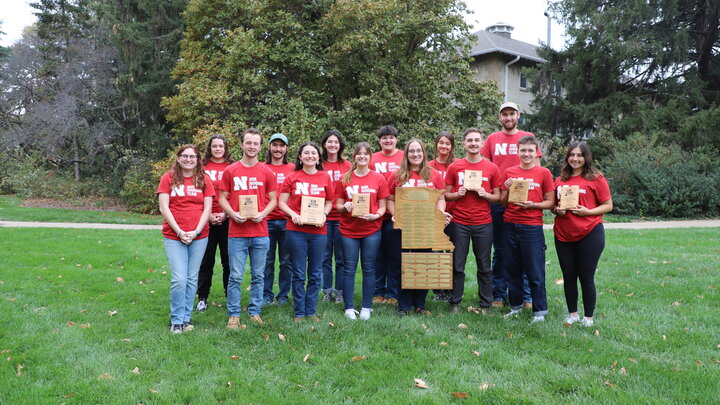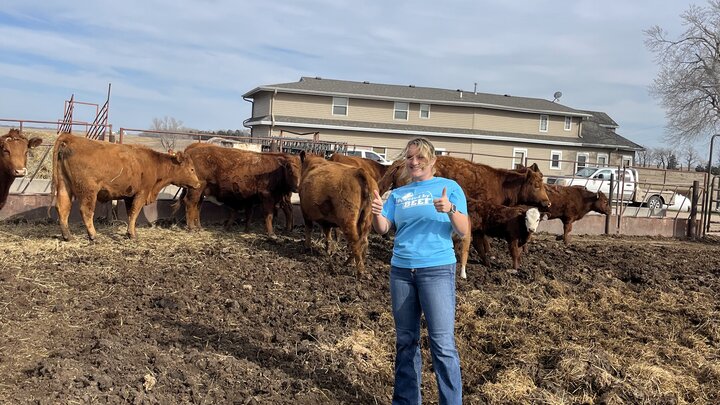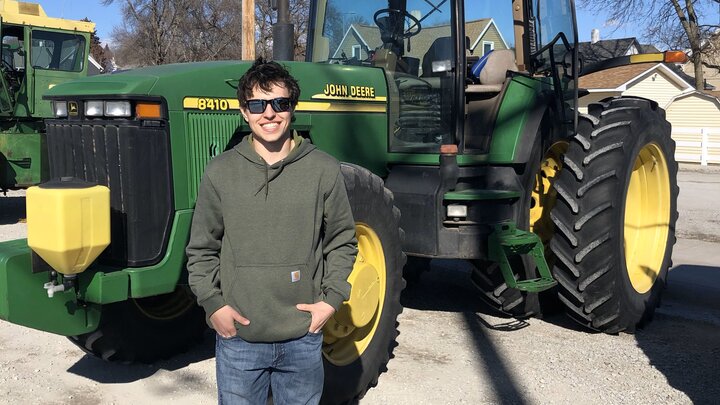Viruses can be spread in many ways and affect both humans and animals. The Nebraska Veterinary Diagnostic Center (NVDC) at the University of Nebraska-Lincoln, a medical laboratory for veterinarians, provides rapid testing and conducts research to develop tests for many different infectious agents – providing protection for Nebraskans and their animals.
Bruce Brodersen, director of the Diagnostic Center, and his team conduct tests that cover all aspects of animal health to assist veterinarians across Nebraska.
“Our main mission is to serve veterinarians and animal owners in the state of Nebraska,” Brodersen said.
The Diagnostic Center performs testing on blood samples, tissue samples, and other biological specimens to give Nebraska veterinarians and animal owners the answers they need to prevent illnesses and care for their animals. Many testing programs provide support for regulatory agencies allowing exportation and trade as well as surveillance for the presence of emerging, high consequence, and transboundary diseases. The most recent research efforts in the NVDC focus on pinkeye in cattle and bacterial pathogens which cause respiratory disease in cattle.
The NVDC extends services beyond veterinary medicine and conducted all COVID-19 testing for the university during the pandemic. Their turnaround was some of the quickest in the state.
Additionally, Scott McVey, Director of the School of Veterinary Medicine and Biomedical Sciences and Hiep Vu, Associate Professor in the Department of Animal Science at the university, are creating a potential vaccine for African Swine Fever.
The potential threat of African Swine fever entering the United States would be detrimental to the pork industry. Being proactive, these researchers work through the Diagnostic Center with a collaborative international community to combat this serious disease threat.
Serving the Nebraska Community
The Diagnostic Center operates with a budget that includes a variety of resources, including University appropriated dollars, revenue generated from testing, and USDA grants.
Recent high priority work of the Center has been COIVID-19 testing and testing for highly pathogenic avian influenza in domestic poultry and wildlife. , Brodersen said.
COVID-19 Testing
The Diagnostic Center is adaptable for testing viruses that infect humans. Similar to livestock testing, the Diagnostic Center works quickly to get results out in a timely manner to limit the spread of the virus.
The NVDC served as a main site for COVID-19 testing in the Lincoln community. Not only did the center conduct all COVID-19 testing for the university, test samples from staff and other local entities were collected and analyzed.
“On average, COVID-19 test results at the center were shared between 6 and 8 hours after samples were received,” Brodersen said. “The most COVID-19 samples we had in a day were around 5,000, but we were set up and knew how to handle large volumes of samples like that.”
Further, with Avian Influenza outbreaks occurring in birds around Nebraska, the Diagnostic Center performs tests on all flocks suspected of being infected with the virus. and provides same-day test results in high priority situations.
Avian Influenza
Avian Influenza has an 80 to 90% mortality rate and is responsible for the deaths of millions of birds, including chickens and turkeys that are used for human consumption, Brodersen said.
“There were millions of birds that had to be depopulated to stop spread of the Avian Influenza virus,” Brodersen said. “It is extremely important to provide accurate test results in a very timely manner so producers and governmental veterinarians can respond to an outbreak appropriately.”
The Diagnostic Center works as a medical laboratory for veterinarians and receives most test samples through FedEx, UPS, and post offices.
International Community Collaboration
Research on African Swine Fever, a deadly viral disease with a 95% fatality rate, must be completed in certified laboratories; therefore, Nebraska internationally to combat this serious disease threat.
“The impact of African Swine Fever is twofold: 1) the direct impact of the disease and 2) impacts and limitations on international trade,” Vu said
In the event of an African Swine Fever outbreak, all exposed pigs must be euthanized and can not be used for meat. Therefore, if the virus spreads, there could be a major pork shortages with a devastating number of euthanized pigs, McVey said.
African Swine Fever has not been detected in America, however, the virus spreads rapidly, so McVey and his team are diligently learning how to mitigate risk in order to avoid the virus entering the United States. The virus has recently infected pigs in the Dominican Republic and Haiti in the western hemisphere.
“This virus spreads from direct, close contact and, if contracted, persists in pork products and environments where infected pigs were housed,” McVey said. The virus can also be transmitted through Argasid ticks.
Vu and McVey work with several countries, including Vietnam, China and Tanzania, that are impacted by this virus to understand the complexity of the strains.
“The viral proteins that stimulate protective immunity are not fully characterized at this time,” Vu said.
As such, Vu and his team are studying the African Swine Fever proteins in the Nebraska Center for Virology to determine which proteins to target in hopes of creating a vaccine and eliminating the threat of limited pork productions.
For more information regarding testing at the Nebraska Veterinary Diagnostic Center, please visit https://vbms.unl.edu/nvdc
For more information regarding African Swine Fever and the research of Scott McVey and Hiep Vu, please visit https://news.unl.edu/newsrooms/today/article/vu-to-lead-research-project-in-fight-against-african-swine-fever/
Key Takeaways
- The Nebraska Veterinary Diagnostic Center provides rapid testing and conducts research intended to help the livestock industry – ultimately to provide protection for Nebraskans and their animals.
- Primarily, the Diagnostic Center is a full-service laboratory that supports the animal industry and economic vitality of Nebraska
- They also extended their services beyond animals and conducted all COVID-19 testing for the University of Nebraska system faculty, staff, and students during the pandemic to limit exposure.
- The potential threat of African Swine fever making its way to the United States would be detrimental to the pork industry, so to stay ahead of the issue, Nebraska researchers in the Diagnostic Center work with a collaborative international community to combat this serious disease threat.
- For more information please visit: https://vbms.unl.edu/nvdc or https://news.unl.edu/newsrooms/today/article/vu-to-lead-research-project-in-fight-against-african-swine-fever/




